Psilocybin mushrooms, popularly called “magic mushrooms,” have recently gained increased interest for their potential use in mental health treatment. Western researchers began researching its effects on brain function and therapeutic possibilities in the 1950s and 1960s.
Studies exploring the use of psilocybin in conjunction with psychotherapy to treat mental health conditions are becoming more common. But before being used regularly for therapeutic purposes, concerns regarding psilocybin’s effects, stigma, financing, and laws need to be addressed. This article examines the possible benefits of psilocybin mushrooms on mental health, including research results, practical applications, and greater impacts.
Understanding Psilocybin
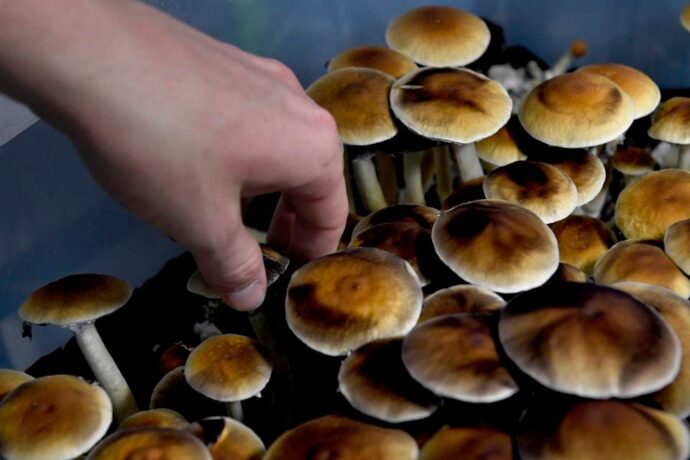
Some mushrooms contain psilocybin, a naturally occurring psychedelic. When consumed, it turns to psilocin in the body. Psilocybin, historically employed in various ethnic ceremonies, is now being researched for its possible medicinal effects.
The Science Behind Psilocybin and Mental Health
These include the following:
Neuroplasticity and Brain Connectivity
Psilocybin has been found to increase neuroplasticity, or the brain’s ability to restructure itself by generating new neural connections. People with this increased plasticity can overcome the inflexible cognitive processes linked to mental illnesses like anxiety and sadness.
Serotonin Receptor Stimulation
Psilocybin focuses on the serotonin receptors in the brain, especially the 5-HT2A receptor. This interaction is thought to play an important role in mood regulation, perception, and cognition. It provides a potential treatment option for mood disorders.
Default Mode Network (DMN) Modulation
A group of brain regions known as DMN are active when the body is at rest and is involved in self-referential thought. Psilocybin can temporarily disrupt the DMN, which lessens negative thought patterns while increasing openness and flexibility.
Therapeutic Applications of Psilocybin
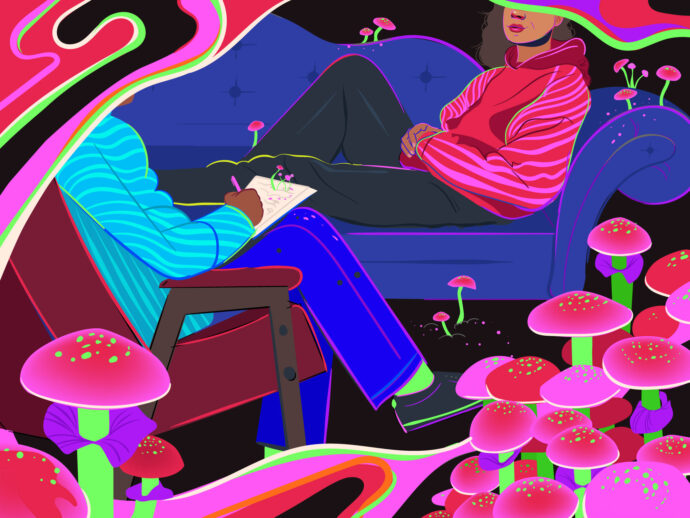
Here are ways that it has been applied.
Depression
Studies on patients with treatment-resistant depression have demonstrated the significant effects of psilocybin. It has been discovered for several weeks to months that a single dose given under controlled conditions reduces depression symptoms greatly.
Anxiety and PTSD
Psilocybin has shown potential in reducing anxiety, particularly in patients with terminal conditions. Psilocybin-assisted therapy can help patients confront and resolve traumatic memories by reducing fear and promoting feelings of fellowship. This is an innovative way of treating PTSD.
Addiction Treatment
Psilocybin may be useful in treating substance use problems, according to studies. According to studies, psilocybin might be useful in the treatment of substance use problems. Psilocybin can help people see their actions and intentions from fresh angles by prompting deep, frequently transforming experiences. It aids in their attempts to stop their addiction.
The Psychedelic Experience and Mental Health
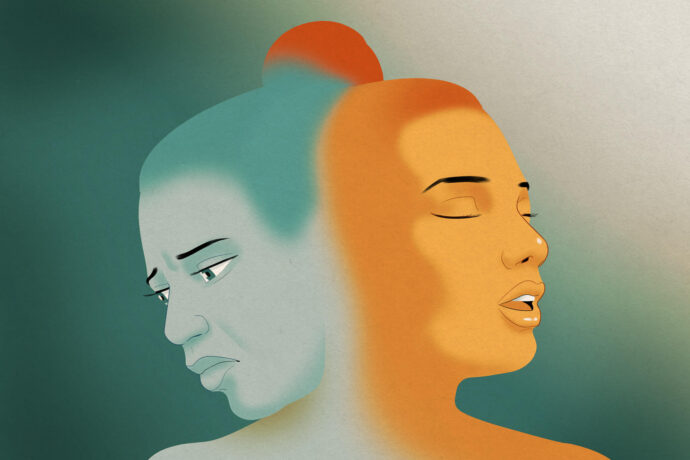
Here is what people experience with this treatment.
Ego Dissolution
One of the most powerful effects of psilocybin is ego dissolution, in which your sense of self dissolves temporarily. This may result in less self-centered thinking and a feeling of inclusion in the world. Individuals suffering from problems rooted in negative self-perception may find this therapeutic.
Mystical and Spiritual Experiences
Many people describe having mystical or spiritual experiences while under the influence of psilocybin. For people who have trouble with mental health concerns, Tangerine Retreat can offer a feeling of purpose, meaning, and connection.
Emotional Release and Insight
Psilocybin can help people process suppressed emotions and get insights into their minds. This can be especially useful in therapeutic settings, as these findings can be incorporated into future therapy.
Researching the Potential Antidepressant Effects of Psilocybin
Researchers examined databases for clinical studies of psilocybin for depression, comparing it to controls such as microdoses, niacin, or placebos. They considered studies that used psychotherapy in both groups to isolate the effects of psilocybin, examining seven trials with 436 participants.
According to the findings, psilocybin significantly reduced the symptoms of depression. The presence of secondary depression, age, self-reported scales, and past psychedelic use were all associated with greater gains. Only Oregon and Colorado presently allow psilocybin at approved centers; legislation changes are necessary before psilocybin can be widely used.
Challenges and Considerations
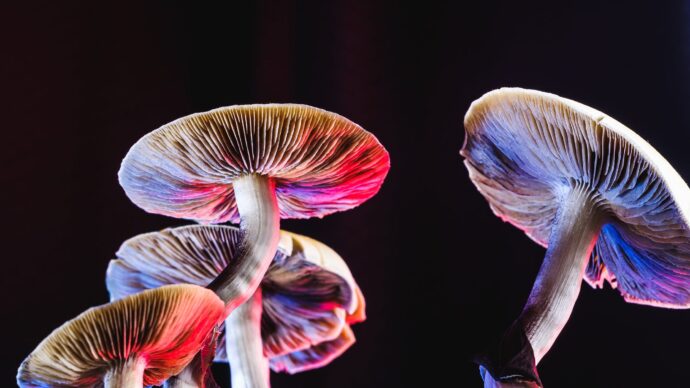
Psilocybin shows a lot of promise, but it is not without downsides. Such as:
Legal and Regulatory Hurdles
Despite encouraging research, psilocybin is still a Schedule I substance in many nations, including the United States. This classification creates major impediments to research and clinical application. However, recent improvements in some countries are paving the door for greater acceptability.
Safety and Supervision
Even while psilocybin is usually regarded as safe when used in approved environments, using it unsupervised carries some hazards. Some of them include potential psychological distress and long-term underlying mental health conditions. To reduce these hazards, careful screening, planning, and expert monitoring are crucial.
Individual Variability
Psilocybin’s effects can differ greatly from person to person, depending on a variety of factors. These include personality, heredity, and the setting in which it is consumed. Understanding these individual variances is critical for achieving optimal therapy outcomes.
How much does psilocybin therapy cost?
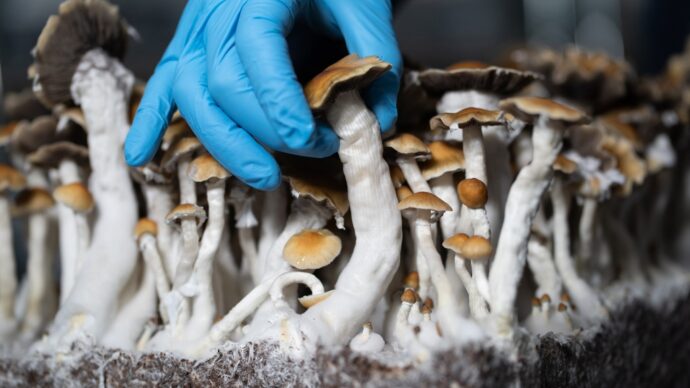
Psilocybin treatment is not federally permitted, although it is decriminalized in some states where clinics are getting permits. The fees range from $300 for low-dose group sessions to $3,500 for high-dose individual sessions. High fees and a lack of insurance coverage make access difficult. It is still unlawful in the United States to use, sell, or possess psilocybin.
Future Directions
The future of psilocybin therapy is bright. Here are things to look out for.
Expanded Research
Further research is required to completely understand psilocybin’s medicinal potential. To prove psilocybin’s effectiveness in treating mental health issues, clinical trials involving a variety of groups and long-term follow-ups are essential.
Integration into Clinical Practice
The need for consistent standards in mental health care is being driven by mounting evidence of psilocybin’s effectiveness. Integrating requires educating providers and creating safe use policies.
Public Education and Stigma Reduction
Educating the general population about the potential advantages and risks of psilocybin is essential for minimizing stigma and increasing acceptance. Public health campaigns and efforts can help to influence views and support regulatory reforms that make psilocybin-assisted therapy more accessible.
Conclusion
Mushrooms containing psilocybin have great potential as a way to enhance mental wellness. It encourages neuroplasticity, modifies brain networks, and provides novel treatments for depression, anxiety, PTSD, and addiction.
Psilocybin in mental health treatment is becoming popular despite obstacles thanks to continued study and improved concepts. There is hope and healing for many people with mental health concerns if psilocybin’s potential is explored.















